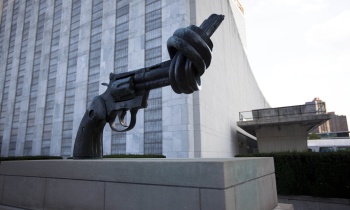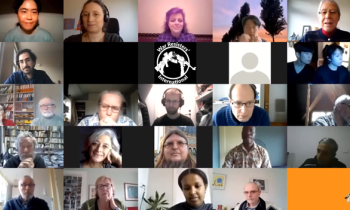Conscientious Objection to Military Service

Quaker beliefs in pacifism and rejection of cultures of conflict and normalized violence guide us to carry out this work. Historically, Quakers have objected to military service and have been persecuted for their conscientious objection and we support all whose conscience calls them to reject military activity. QUNO has been working for over 60 years to secure and strengthen the recognition of the right to conscientious objection to military service through work with the UN human rights Treaty Bodies, Special Procedures and the Human Rights Council. In addition, QUNO has worked on amicus briefs to regional human rights courts and national constitutional courts. Our efforts have played a significant role in the recognition in human rights instruments of conscientious objection to military service.
This work aims to strengthen and clarify the right to conscientious objection to military service in international law. We do this by supporting the development of standards and guidance on implementation of this right in practice and we also link conscientious objectors and their organisations to relevant UN processes.
QUNO is currently researching the application of UNHCR guidance on refugee status determination in cases of conscientious objection to military service in different countries. Our aims are to ensure that States are effectively applying existing international law and human rights guidance.
We collaborate with conscientious objectors and international and national organisations that focus on conscientious objection to military service. Working with others enables us to seek the full recognition and implementation of the right to conscientious objection to military service.
While we are still far from the full recognition and implementation of this right for all conscientious objectors to military service we have travelled a long way towards it, showing how our steady, long-term work on issues of concern leads to real change and demonstrating the role of international standards in improving national laws and practices.





